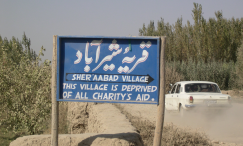While the West struggles with the uncertainty of coronavirus, for Afghanistan it’s a way of life, and opium poppy cultivation is an important part.

The intimidation and assassination of social leaders: Colombia’s other pandemic
Social leader Marco Rivadeneira was murdered during the COVID-19 mayhem – intimidation has not ceased as has been reported.

Three strategies to transform approaches to illicit drug economies
While the World Bank Fragility Forum 2020 was postponed, development leaders still need to rethink their approaches to illicit drugs. Here’s how.
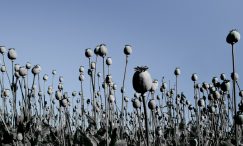
Illegality, violence and fragility: do they breed each other?
This common assumption doesn’t always hold true. Eric Gutierrez looks to the real problems: inequality, marginalisation and exclusion.

Five reflections on Asia’s drug policies for the 2020s
Drugs are likely to play a bigger role in Asia, here’s why and what it means for the region’s drug policies.

The historical role of opium and what it tells us about illicit economies today
Jonathan Goodhand explores historical insights from two books and what they tell us about illicit economies today.

Colombia´s anti-drugs policies: evidence versus ideology
Crop substitution is being underfunded and coercion prioritised. Christian Aid’s Thomas Mortensen explains why.

Data management: how we’re building capacities in a complex research project
Our data manager Veerle Van den Eynden shares practical advice on building capacity for good data management.
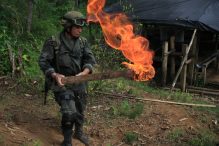
There is still time to make Colombia’s illicit crop substitution programme work
This blog shares the key results of a survey with coca farmers in two of Colombia’s highest coca producing regions.

What you didn’t know about Mexico’s opium crisis
The drug fentanyl is devastating Mexican poppy cultivating communities, but it could be an unprecedented opportunity for Mexico.

A curious case of unusual economic transformation
Explaining and challenging dominant narratives around illicit crops and development, using the curious case of Myanmar.
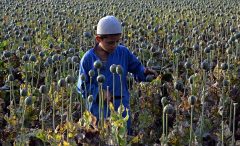
How the war on drugs criminalises the poorest in human society
We need to recognise that people need to survive – they should not be treated as criminals for trying to do so, Christian Aid’s Karol Balfe writes.
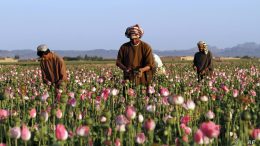
Illicit drugs and peace: why the borderlands matter
The borderlands lie at the country margins, but are central to processes that generate war and peace.

